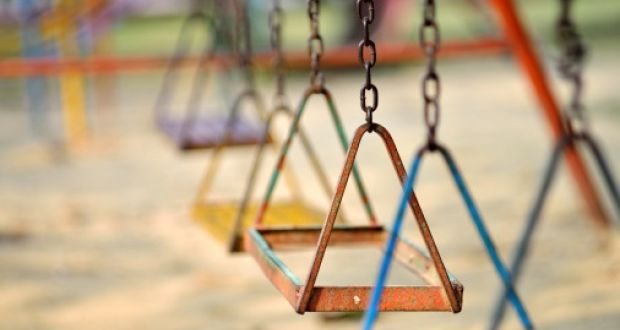Priest Allowed Contact with Children after Abuse Allegation
By Patsy McGarry
A priest was allowed to have contact with children for at least two years after a female relative accused him in 2002 of abuse as a child, according to a report released today. The Salvatorian priest later admitted that he had abused in excess of 100 children up to 2004. The details are contained in the latest and final tranche of its reviews of child protection in Catholic institutions on the island of Ireland the church’s National Board for Safeguarding Children . Following a complaint in 2002 by a relative that he abused her when she was a child , this priest was withdrawn from ministry in Dublin. However the reason given to the Archbishop of Dublin was the stress of his responsibilities. He was moved to Rome. There was no evidence that the then Provincial of the day complied with Church guidelines on handling the case, the review found. In 2004, on a visit to Ireland, the priest was reported to gardai by a family for the abuse of a daughter. He was arrested and convicted in 2007 in relation to the admitted abuse of “several girls” over a 25 year period. Sentenced to four years, all suspended except for 18 months, he left prison in 2009 and died later that year. The Board said of this case that it wished to impress on the Salvatorians “the considerable responsibility it still carries to ensure that the devastation perpetrated on his victims by Fr A is conscientiously, compassionately and effectively addressed.” Overall the reports found that of 30 religious congregations reviewed, 13 of them male, were concerned two were not implementing standards properly. The board said that the Salvatorians and the Blessed Sacrament Fathers showed “little evidence that the standards have been properly implemented. The Salvatorians were particularly poor in relation to the monitoring of an accused priest. And in a number of cases poor record-keeping took place,” said Teresa Devlin, the Board’s chief executive. In the case of the Blesssed Sacremanent Fathers it was found that abuse allegations had been made against at least six members but this could not be clear due to poor record keeping. Just two accused were reported to gardai and civil authorities, with one still in ministry at time of the review. The two were convicted in the courts. In total this review of 30 congregations found that there had been 288 allegations made against 90 priests, brothers or sisters with 10 criminal convictions arising. The allegations relate to the period between 1950 and 2002 with one incident in 2013. Of the allegations made 132 had been against 46 members of the Brothers of Charity, all of which had been reported to gardai and 117 to relevant civil authorities. Four accused Brothers were convicted in the courts. An additional 36 allegations had been made against lay people associated with the Brothers of Charity. A total of 97 allegations, complaints and expressions of concern had been made against 24 St John of God Brothers, 95 of which were reported to the gardai. None of the Brothers had been convicted in the courts. Where the Marist Brothers were concerned a total of 39 allegations had been made against 15 members, three of whom were convicted in the courts. One abuse allegation had been made against an Opus Dei priest and was reported to gardai. The DPP decided there wasn’t sufficient evidence to pursue the case which went back 40 years. Five congregations were reviewed under the full set of standards as they are active in ministry and would have some contact with children. A further four were reviewed under a smaller set of standards as they have no contact with children but did have allegations made against them in the past – necessitating an examination of how they handled them. The remaining 21 congregations have no contact with children and no allegations, and so were assessed against the limited number of standards that apply. Reviews undertaken of four congregations cannot be reported on or published, as they are included in the statutory review of the Historical Inquiry into Child Abuse in Institutional Care in Northern Ireland (HIA). These reports will be published following the HIA report in 2017. The vast majority of reports published were “positive and reflect orders that have taken on the goals of child safeguarding and made it integral to what they do,” said Ms Devlin. “With so many elements of the church improving safeguarding for children so much, complacency might sneak in,” she said. “But the fact that we had an allegation as recently as 2013 shows that we cannot allow that to happen. With that in mind a new set of standards has been agreed with the Church and we will soon be launching the detailed guidance for their implementation.” Meanwhile the work of monitoring compliance by the Board would continue, she said. Details of all 30 reviews are at safeguarding.ie The Board encouraged anyone who has suffered abuse to contact Towards Healing, the counselling and support service for survivors of clerical and religious congregations’ abuse, which is totally independent although funded by the Catholic Church. It is available at towardshealing.ie Or Free phone 1800303416 (Republic of Ireland) Free phone 0800 0963315 (Northern Ireland), Monday to Thursday 11am — 8pm, Fridays, 11 am — 6 pm
|
.
Any original material on these pages is copyright © BishopAccountability.org 2004. Reproduce freely with attribution.
